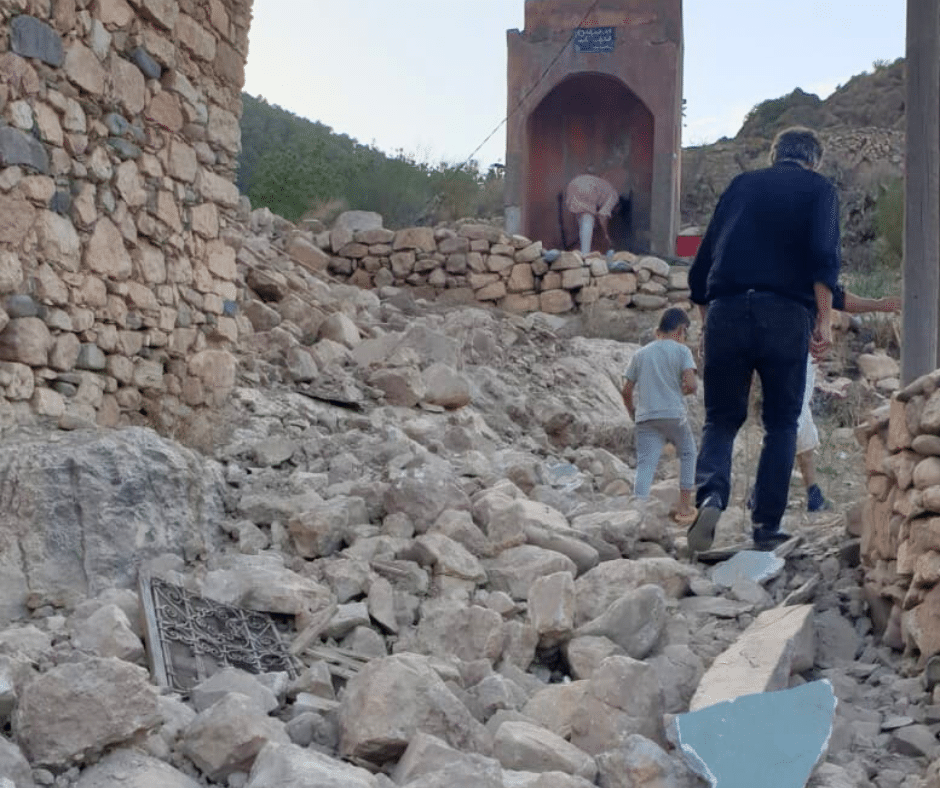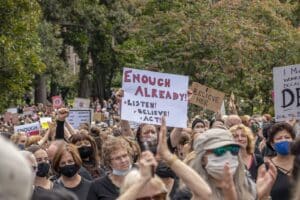
Jenan Taylor
12 September 2023
Faith aid organisations say the needs of the most vulnerable people must be factored into relief efforts in the wake of the Moroccan earthquake.
A 6.8 magnitude earthquake shook Morocco just after 11pm local time on Friday, with the epicentre in the remote Atlas Mountains.
More than 2,600 people have been killed, and a further 2,500 people injured in what disaster monitors reported was the strongest earthquake in the region in more than a century.
The International Federation of Red Cross and the Moroccan Red Crescent have reported several challenges with search and rescue efforts because of the terrain and the impacts of the quake, including landslides, on it.
Anglican Overseas Aid and Caritas Australia said it was likely the disaster would disproportionately affect the most vulnerable people, and it was important to consider their needs.
AOA Disaster and resilience coordinator Tim Hartley said women and children, people with disabilities, the sick and the elderly with mobility challenges, were likely to need extra support through every phase of the recovery effort.
Mr Hartley said AOA had no partners working in Morocco, but that their experiences in the aftermath of the Nepal earthquake in 2015, magnitude 7.8, was a significant learning event about response priorities.
Read more: Earthquake emergency relief efforts focusing on shelter, warmth and food: Open Doors
He said like in Nepal, it was probable that the Atlas area suffered massive physical disruption, including badly damaged roads and other service delivery infrastructure like drinking water pipelines.
When those things disappeared it was people with disabilities, nursing mothers and small children, that tended to fall off the radar because they couldn’t get to aid hubs, Mr Hartley said.
He said once aid groups dealt with the basic needs of shelter, water and foodstuffs, the focus usually shifted to hygiene challenges.
Mr Hartley said when communities were internally displaced and without proper services, people, particularly the most vulnerable, would become susceptible to cholera, diarrhoea, and other diseases.
He said it was important to focus on the protection of vulnerable cohorts, too.
Often, social cohesion fell apart in the aftermath of disasters. Some people who were affected by frailty and mobility issues or who were carers, were reluctant to go to relief centres because they were afraid of the possibility of being victimised there, he said.
“A lot of it of it is just about how people recover from or respond to trauma,” Mr Hartley said.
He said it was why in relief delivery, being able to provide psychosocial support and trauma chaplains was a strength of faith-based agencies.
Caritas Australia said disasters always had outsized impacts on people who needed extra care, and it was important to provide dignified and timely support for them, including ensuring shelters were accessible.
Humanitarian Emergencies Associate Director Melville Fernandez said the agency was responding to the disaster across the region in partnership with other organisations.
Read more: Australia to hit historic low in overseas aid generosity
Mr Fernandez said focusing on the needs of the most vulnerable people was always a priority in the agency’s humanitarian responses.
He said neighbouring countries, including Spain, had sent personnel and special equipment for the rescue operation, which would be critical in finding people who needed help, and for determining the best response to the disaster.
Mr Fernandez said agencies such as Caritas were working with those rescue operations to provide relief essentials including food, medicines and water, where they were most needed.
The organisation was also focused on preparing for the long term needs of people who no longer had homes to return to, he said.
Caritas Australia has launched an appeal for the Morocco earthquake. For details, see here.
For more faith news, follow The Melbourne Anglican on Facebook, Instagram, or subscribe to our weekly emails.






